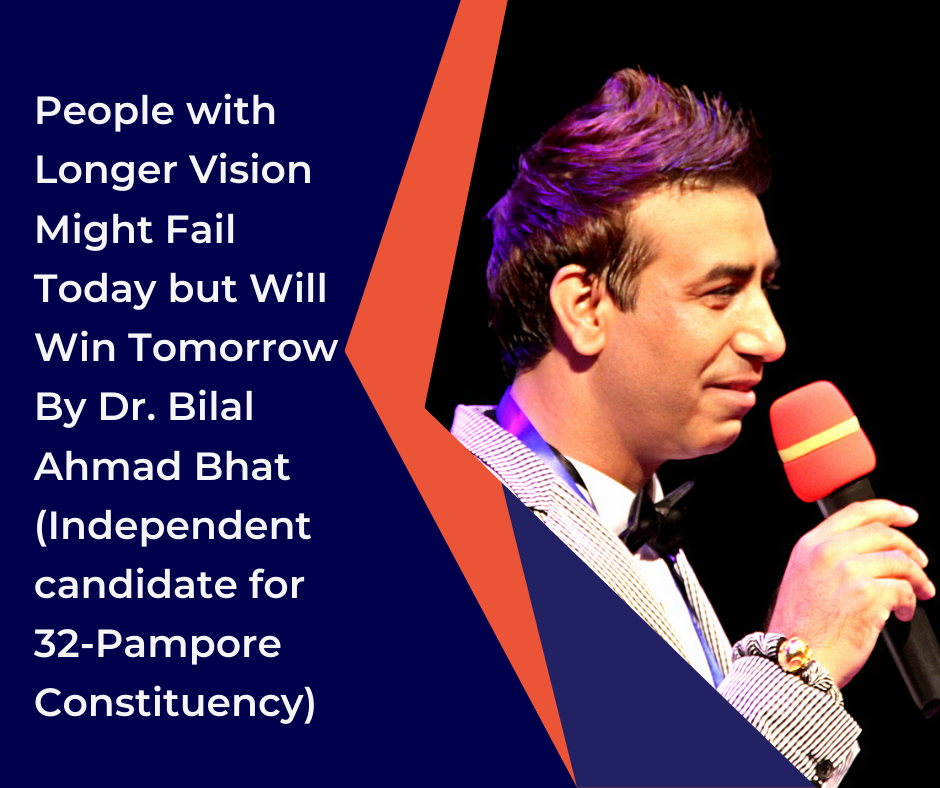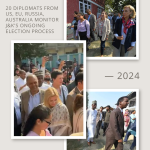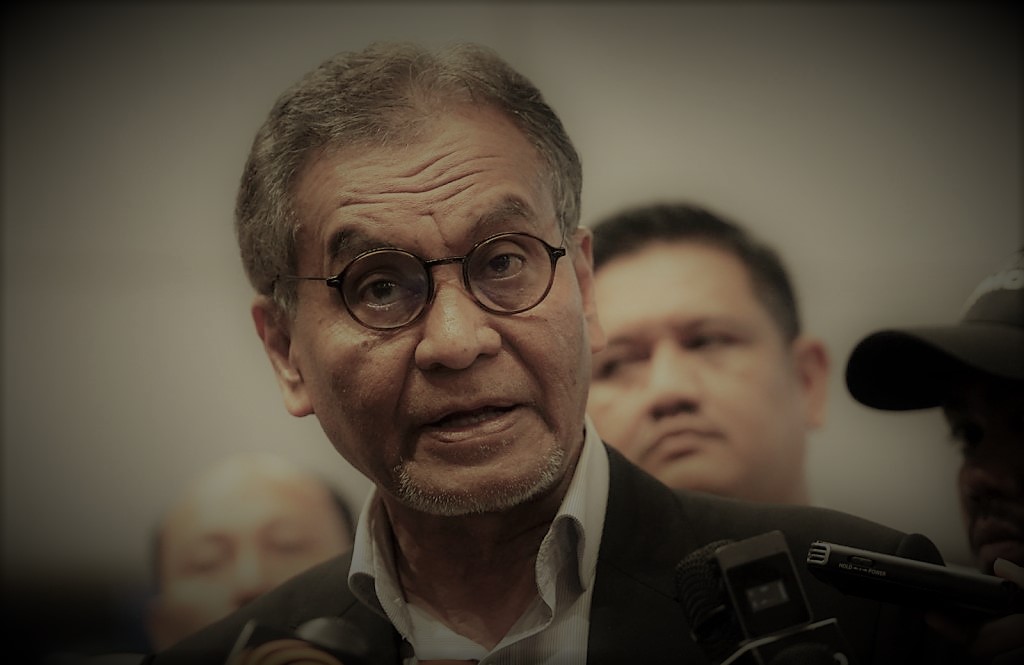In the fast-paced, result-driven world we live in today, success is often measured by immediate gains, quick accomplishments, and rapid progress. Instant gratification has become a hallmark of modern society, shaping how we perceive success and how we navigate our personal and professional lives. However, history, philosophy, and experience teach us something entirely different: real success is not always immediate. Sometimes, those who lose today or seem to fail in the short run, end up being the true winners of tomorrow.
This article delves into the power of having a long-term vision, understanding setbacks, and how perseverance, strategic thinking, and foresight shape the future for those with the patience and wisdom to look beyond today’s disappointments.
The Power of a Longer Vision
Having a long-term vision means seeing beyond the present moment, understanding that today’s actions may not yield instant rewards but will create a solid foundation for future success. Those with long-term vision are not driven by immediate results but are committed to their goals, knowing that the seeds they plant today will bear fruit in the future.
In politics, business, and even personal life, those who adopt this forward-thinking approach often encounter obstacles and setbacks. Why? Because the path to long-term success is riddled with challenges. But, this does not mean failure—rather, it represents the refining process that molds us into who we need to become to succeed in the future.
Today’s Failure, Tomorrow’s Success
Many historical figures—entrepreneurs, leaders, inventors, and visionaries—faced countless failures and criticisms before their eventual success. Consider Abraham Lincoln, whose early political career was marked by a series of losses. He faced public ridicule, personal tragedies, and political defeats. But Lincoln didn’t give up. His perseverance led him to become one of the greatest leaders in American history, shaping the nation’s future and leaving a lasting legacy.
Another example is Thomas Edison, who famously said, “I have not failed. I’ve just found 10,000 ways that won’t work.” His countless unsuccessful attempts to create the light bulb weren’t failures but lessons that brought him closer to success. Edison’s long-term vision and resilience ultimately changed the world.
Closer to home, in our own political landscape, we see figures who have worked tirelessly with a broader vision for their constituencies and communities. These leaders understand that real change is not instantaneous but requires time, persistence, and a willingness to endure short-term losses for long-term gains.
For those of us who strive to bring meaningful change to our society, the road is often filled with immediate challenges. The temptation to make decisions that produce short-term gains is always there, but true leadership lies in the ability to resist that temptation and keep the larger picture in mind. As an independent candidate for the 32-Pampore constituency, my goal is not just about winning an election today. It’s about ensuring a brighter future for our community—a future where our children have better education, healthcare, and opportunities. This vision may take time, but I firmly believe that the seeds we sow today will create the future we all aspire to see.
Why Long-Term Thinkers Might Fail Today
The modern political and social environment thrives on instant results. In politics, immediate popularity often overshadows long-term policy-making, and in business, quarterly earnings are valued over sustainable growth. Long-term thinkers are often met with skepticism or dismissed as being out of touch with the demands of the present. Why is this?
1. The Urgency of Now: Modern society has created a culture of impatience. Quick fixes, shortcuts, and immediate gratification are the norms. Those who focus on long-term goals often seem disconnected from the urgency of immediate problems.
2. Sacrifice of Immediate Gains: Long-term success often requires sacrificing short-term rewards. This can be particularly difficult in competitive environments like politics or business, where immediate success is critical for survival.
3. Criticism and Lack of Support: Those who think long-term often face criticism and resistance. Their vision may not align with the current expectations of the public or stakeholders, leading to a lack of support.
4. Complexity of Long-Term Planning: Long-term strategies are often more complex and uncertain than short-term actions. Immediate problems can be addressed with quick, simple solutions, whereas long-term plans require careful thought, planning, and the willingness to deal with ambiguity.
The Resilience of Long-Term Visionaries
The most critical quality that separates those who eventually succeed is resilience. Those with long-term vision understand that setbacks, failures, and disappointments are part of the journey. They recognize that each failure is a stepping stone toward ultimate success.
Resilience is built on several key principles:
1. Perseverance: Continuing to move forward despite obstacles.
2. Adaptability: Being flexible enough to adjust plans when needed but never losing sight of the end goal.
3. Patience: Understanding that meaningful change takes time, and immediate failure does not mean permanent defeat.
4. Strategic Thinking: Looking beyond today’s problems to understand how actions today affect the future.
Long-term thinkers develop these qualities over time. They learn to tune out the noise of immediate criticism, short-term failures, and temporary setbacks, focusing instead on their ultimate vision.
The Rewards of Long-Term Thinking
For those who are willing to embrace a long-term vision, the rewards are vast. While the road may be difficult and the journey may seem longer, the eventual payoff is often more meaningful and lasting. Some of the benefits include:
1. Sustainable Success: While short-term success can be fleeting, long-term success is often sustainable and far-reaching.
2. Deeper Impact: Long-term thinkers can make more significant, long-lasting contributions to society, politics, and business, leaving behind a meaningful legacy.
3. Fulfillment: The satisfaction that comes from achieving a long-term goal is unmatched by short-term wins. There is a deeper sense of accomplishment that comes from overcoming adversity and staying true to one’s vision.
4. Inspiration to Others: Long-term success stories inspire others to adopt a similar approach. Visionaries serve as role models, demonstrating that real change and success take time, effort, and patience.
Conclusion: Winning Tomorrow
While immediate success is often celebrated, it is those who think long-term who make the most profound and lasting impact. They may face criticism, endure setbacks, and even fail in the short term, but their unwavering commitment to their vision will lead them to ultimate success.
As I stand as an independent candidate for the 32-Pampore constituency, my commitment is not just to win today’s election but to work for the future of our community. It is about creating a better tomorrow, knowing that real change requires time, dedication, and a willingness to endure the difficulties of today. With a long-term vision, we might face challenges in the present, but in the end, we will be the ones to shape a better tomorrow for all.
—
Dr. Bilal Ahmad Bhat is an independent candidate for the 32-Pampore constituency. He is dedicated to the long-term development of his community and believes in building a future that is inclusive, prosperous, and sustainable.








